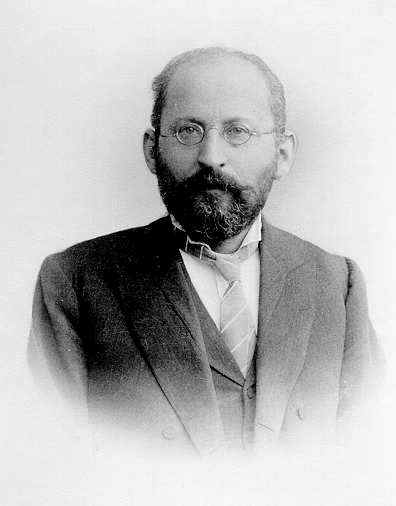Eduard Bernstein
 Eduard Bernstein (; 6 January 1850 – 18 December 1932) was a German social democratic politician and socialist theorist. A member of the Social Democratic Party (SPD), Bernstein is best known for his reformist challenge to Marxism known as evolutionary socialism or revisionism, in which he questioned the revolutionary predictions of Karl Marx and advocated for a gradual, parliamentary path to socialism. His political and theoretical work played a significant role in the development of modern social democracy and reformist socialism.
Eduard Bernstein (; 6 January 1850 – 18 December 1932) was a German social democratic politician and socialist theorist. A member of the Social Democratic Party (SPD), Bernstein is best known for his reformist challenge to Marxism known as evolutionary socialism or revisionism, in which he questioned the revolutionary predictions of Karl Marx and advocated for a gradual, parliamentary path to socialism. His political and theoretical work played a significant role in the development of modern social democracy and reformist socialism.Born into a lower-middle-class Jewish family in Berlin, Bernstein became active in socialist politics in his early twenties. He spent years in exile in Switzerland and London during the period of the Anti-Socialist Laws in Germany, where he became a close associate of Friedrich Engels. During his time in London, his interactions with the reformist Fabian Society and his observation of the stability of late Victorian capitalism led him to question key tenets of orthodox Marxism.
After Engels's death in 1895, Bernstein began to publicly articulate his revisionist views. In his most influential work, ''Evolutionary Socialism'' (1899), he rejected the Hegelian dialectical method and disputed the Marxist predictions of the inevitable collapse of capitalism, the disappearance of the middle class, and the increasing immiseration of the proletariat. Instead, he argued that socialists should work for gradual social and political reforms through democratic institutions. His famous aphorism, "the goal is nothing, the movement everything," encapsulated his focus on the practical, democratic progress of the socialist movement over a dogmatic adherence to a revolutionary goal.
Although his views were officially condemned by the SPD, which maintained its orthodox Marxist Erfurt Program, the party's practical policies were largely reformist, reflecting the reality Bernstein described. His work sparked major debates within the international socialist movement, pitting him and his supporters against orthodox Marxists like Karl Kautsky and radicals like Rosa Luxemburg. During World War I, Bernstein's pacifist principles led him to break with the SPD's pro-war majority and co-found the anti-war Independent Social Democratic Party (USPD), though he rejoined the SPD after the war. He served in the Reichstag during the Weimar Republic, where he continued to advocate for democracy and peace. He died in Berlin in late 1932, weeks before the Nazi seizure of power. Provided by Wikipedia
Showing 1 - 20 results of 27 for search 'Bernstein, Eduard', query time: 0.01s
Refine Results1
List
Grid
-
1Call Number: MB/6540
-
2Call Number: MA/0812_2
-
3Call Number: MAD/502.23
-
4De titelpagina vermeldt: Conférences faites à l'Université Nouvelle de Bruxelles
By Bernstein, Eduard
Date 1908Call Number: MAD/1338.03 -
5Call Number: MB/6256
-
6Bibliotheek François Vercammen
Oorspronkelijke titel : Die Voraussetzungen des Sozialismus und die Aufgabe der Sozialdemokratie, Stuttgart : Dietz Nachfolger, 1899 ...
By Bernstein, Eduard, Tromp, Bart, Inberg, L.
Date 1981Call Number: MB/4556 -
7Call Number: MB/1846
-
8Call Number: MAD/127.20
-
9
-
10Call Number: MB/4990
-
11Call Number: MB/2699
-
12Call Number: MAD/235.05
-
13Call Number: 2001-MB/021
-
14Call Number: MB/1344_2
-
15Call Number: MAD/235.11
-
16Bibliotheek E. Anseele
Avec une préface spéciale de l' auteur pour l' édition française
By Bernstein, Eduard
Date 1903Call Number: MAD/5036.10 -
17Call Number: MAD/5037.09
-
18Call Number: MAD/5055.01
-
19Call Number: MAD/5064.09
-
20Die deutsche Revolution : Geschichte der Entstehung und ersten Arbeitsperiode der deutschen RepublikCall Number: 2011-MB/021